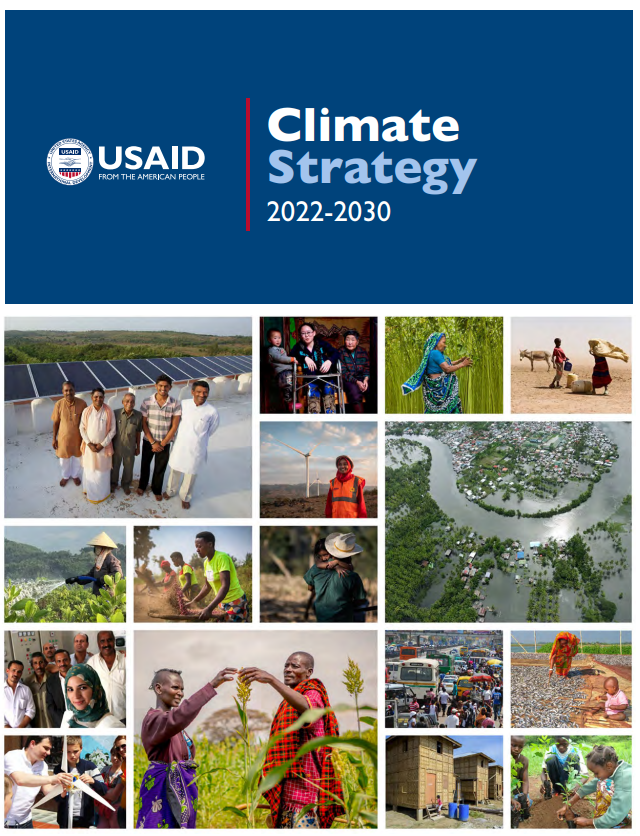🌿 COP 30 - Building a Greener Tomorrow
The 30th UN Climate Change Conference (COP 30) is taking place in Belém, Brazil. Stay informed about global climate actions, negotiations, and live sessions from 10 – 21 November 2025.
Get Updates
CLIMATE STRATEGY 2022-2023
Abstract
Climate change is a global crisis. As temperatures and sea levels rise, people around the world are increasingly seeing heat waves, droughts, foods, cyclones, and wildfires upend their lives. The effects of climate change are not equal – they disproportionately impact the poorest and most marginalized communities we work to support every day. Climate change affects virtually everything that USAID does and threatens the development progress we have supported over more than 60 years. Climate change increases water and food scarcity, displacement, and the need for humanitarian assistance, as well as contributes to conflict and disrupts economic stability. Yet at the same time, our response presents an opportunity to improve livelihoods. Decarbonizing economies means less air pollution that negatively affects health. Building climate-resilient infrastructure means people are safer when disaster strikes and reduces the need for costly repairs after every storm. Investing in green jobs presents an opportunity to make workforces more equitable and inclusive. This decade will be decisive for the future of our planet, and USAID is poised to galvanize the lasting changes necessary to combat climate change. USAID’s convening power, global presence, longstanding partnerships, and breadth of technical expertise position us to make a real difference in this critical global fight. We also recognize that those of us who are responsible for much of the damage caused by the climate crisis have an obligation to those least responsible for causing it. That is why USAID has developed a new Climate Strategy that will guide our work through 2030 in a way that is truly different.
Citation
USAID
Publisher
USAID
Rights Holder
USAID
URI
https://knowledgehub.pksf.org.bd/collections/bWtYeXoyUXc5UUN4cWVuVkIwbEpFdz09

